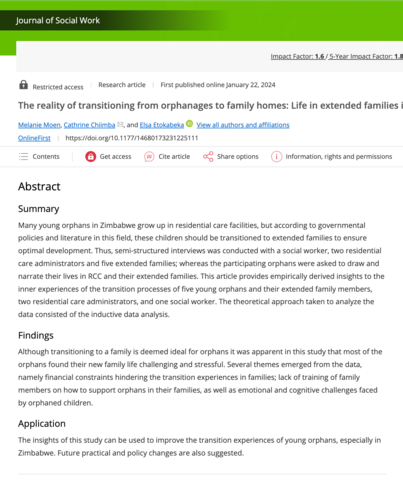Abstract
Summary
Many young orphans in Zimbabwe grow up in residential care facilities, but according to governmental policies and literature in this field, these children should be transitioned to extended families to ensure optimal development. Thus, semi-structured interviews was conducted with a social worker, two residential care administrators and five extended families; whereas the participating orphans were asked to draw and narrate their lives in RCC and their extended families. This article provides empirically derived insights to the inner experiences of the transition processes of five young orphans and their extended family members, two residential care administrators, and one social worker. The theoretical approach taken to analyze the data consisted of the inductive data analysis.
Findings
Although transitioning to a family is deemed ideal for orphans it was apparent in this study that most of the orphans found their new family life challenging and stressful. Several themes emerged from the data, namely financial constraints hindering the transition experiences in families; lack of training of family members on how to support orphans in their families, as well as emotional and cognitive challenges faced by orphaned children.
Application
The insights of this study can be used to improve the transition experiences of young orphans, especially in Zimbabwe. Future practical and policy changes are also suggested.

